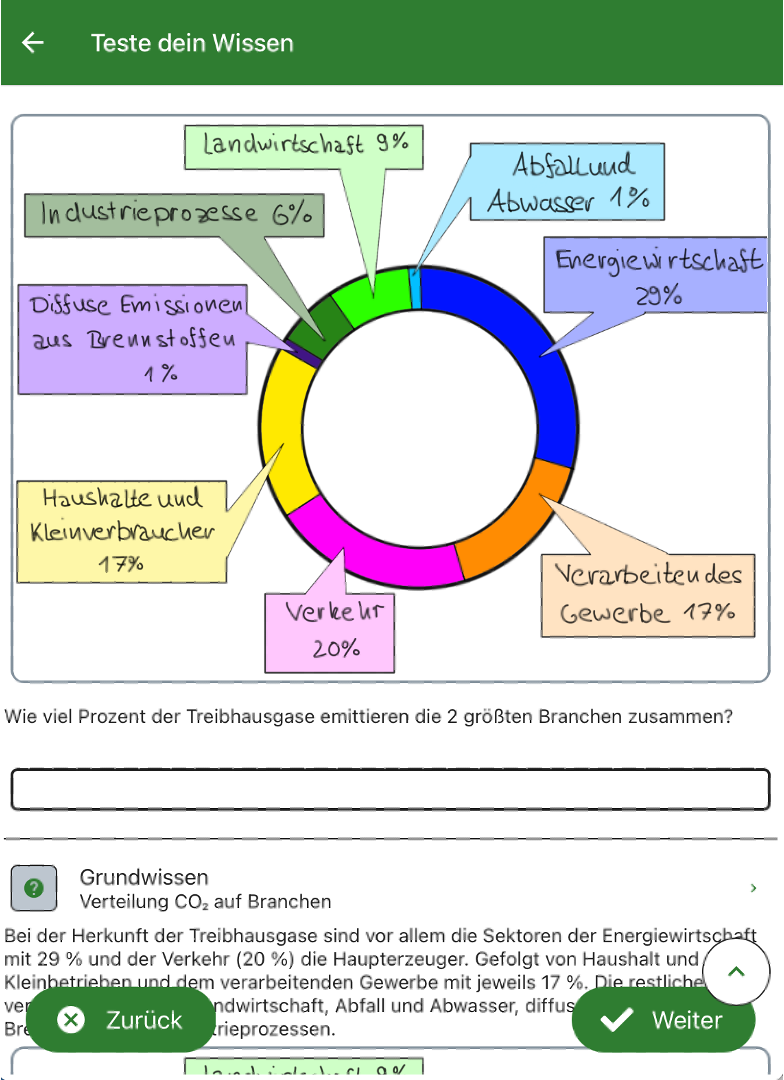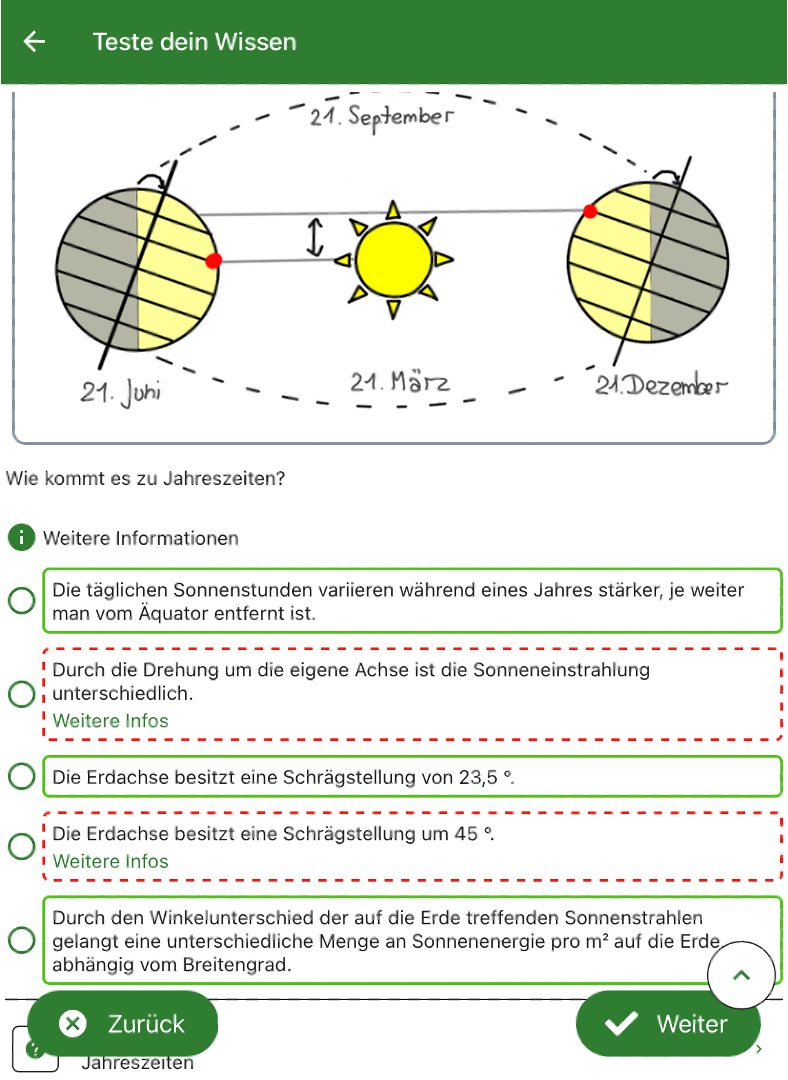Storytelling and Gamification in Sustainable Development Education – A Pilot Study (Estonia)
Keywords: International activities, climate protection, sustainability education, digital education, gamification, storytelling, participatory design
Subject and objectives of the project
The subject of the project was the transnational application and evaluation of gamification and storytelling in the context of target group-oriented modern sustainability education on the topic of climate change in Estonia and Germany. The aim was to develop and test an app in digital file card format that can be adapted to different realities of life. The background to the project is the realization that the young generation has a basic knowledge of environmental issues and climate change, but that this often does not lead to changes in behaviour due to various psychological and structural barriers. Learners need new, modern ways of being addressed so that they can identify with the topics. Germany has some catching up to do when it comes to the digital delivery of educational content, while Estonia is a “digital pioneer”. In Estonia, on the other hand, there is still potential for establishing education for sustainable development (ESD) in the school and extracurricular context.
In order to take account of the conditions in both countries, an analysis of the ESD situation in Germany and Estonia was first to be drawn up, which led to a cross-country comparison. Based on these findings, the content and didactics of the app on climate, climate change and options for action were developed and adapted to specific countries. The target group (students and pupils) in both countries were involved in the participatory approach and contributed their own realities of life through storytelling. The pilot app can be expanded to include other topics, countries and target groups. The learning content of the app was: (1) Basics of weather and climate, (2) Climate change and its effects, (3) What is the personal footprint and how does personal action influence the carbon footprint.
Innovation and exemplary nature of the project
The innovation of the project lies in the combination of digitalization, storytelling and gamification. The interdisciplinary cooperation within the international consortium, consisting of developers, psychologists, education experts and environmental scientists, ensured a high level of quality in project development, implementation and evaluation. Innovative components were added to an existing app, including storytelling and gamification elements. Using participatory design, students developed the flashcards and the story, which were then used in schools. The aim was to be close to the target group in terms of both language and content. The design of the app makes it easy to adapt the app to different topics, age groups and realities of life. The app can be expanded in the future to include other environmentally relevant topics, other countries and target groups. The app can be used both in a school and extracurricular context (e.g. in environmental education centers).
Special aspects of the project
Climate change is a cross-border challenge that can only be solved through cooperation. It is crucial to take into account the specific framework conditions and needs of the countries. The members of the international project team complemented each other with their respective expertise and contributed significantly to the effectiveness of the project. In addition to education experts, experts from the fields of environmental psychology and IT (both universities and SMEs) were involved. The collaboration took place on an equal footing, with each partner contributing their specific expertise to enable a mutual transfer of knowledge. This has driven both ESD capacity building in Estonia and digitalization in education in Germany.



Project implementation:
- RheinMain University of Applied Sciences, Department of Engineering
- University of Tallinn, SEEMIK (Research Group for Sustainability, Environmental Education and Communication Skills)
- Rhineland-Palatinate University of Technology Kaiserslautern-Landau (RPTU; formerly: University of Landau), Department of Social, Environmental and Economic Psychology
Associated partners:
- SmartEducation UG, Darmstadt
- AZN Vogelsberg Heideberg in the Vogelsberg district
- Various schools
Places of work: Germany and Estonia
Funding period: March 2022 to May 2023
Project costs: Total volume: 123,992 euros, funding from DBU: 123,992 euros
DBU-AZ: 37883
Status: 03.05.2024
Cover picture: Prof. Andreas Zinnen, HS RheinMain